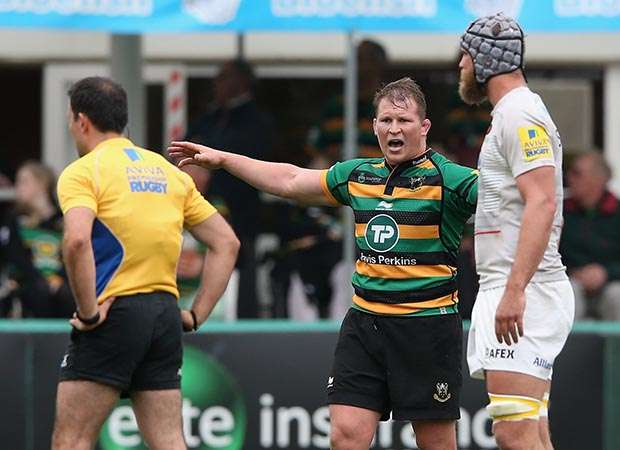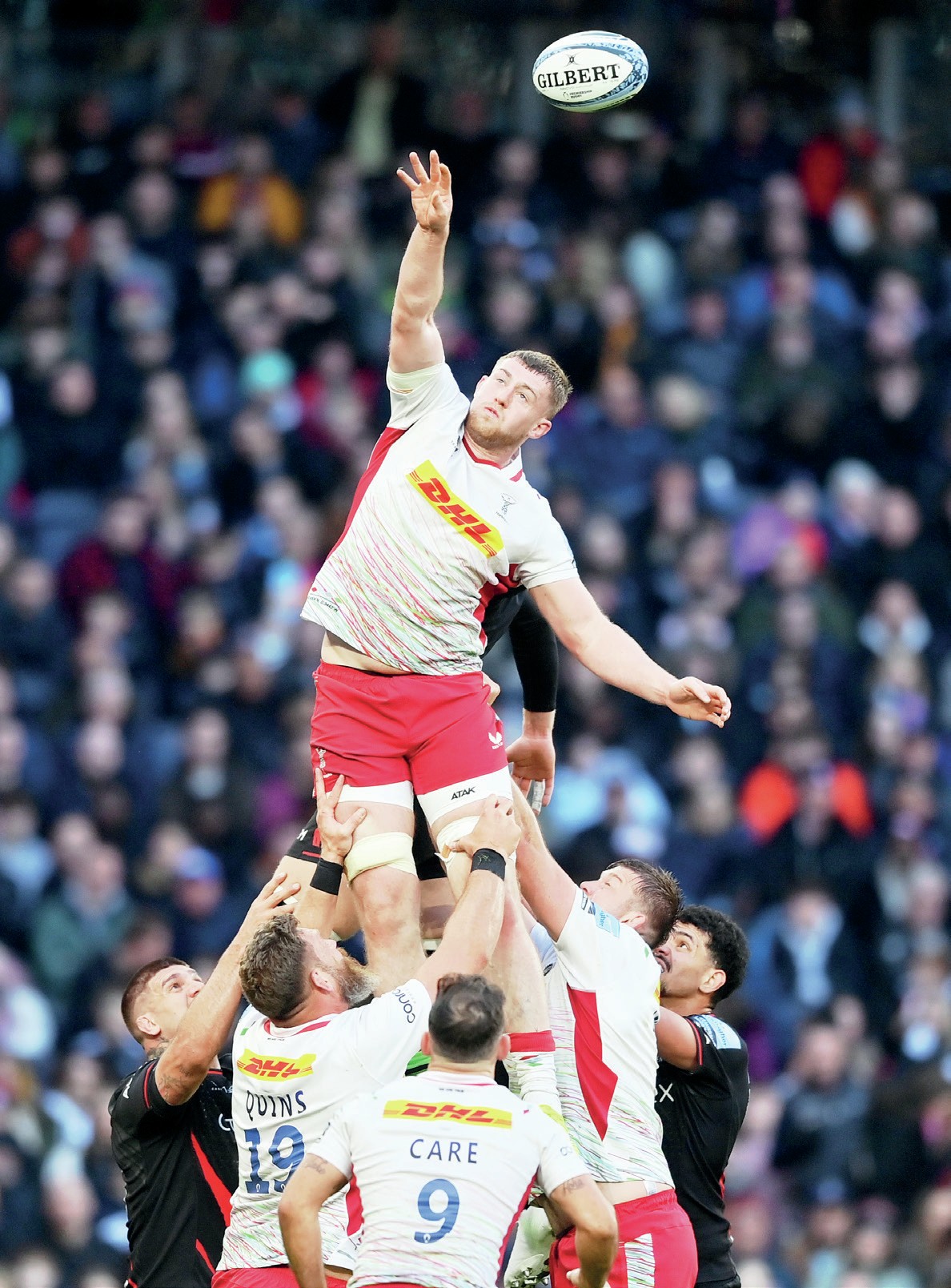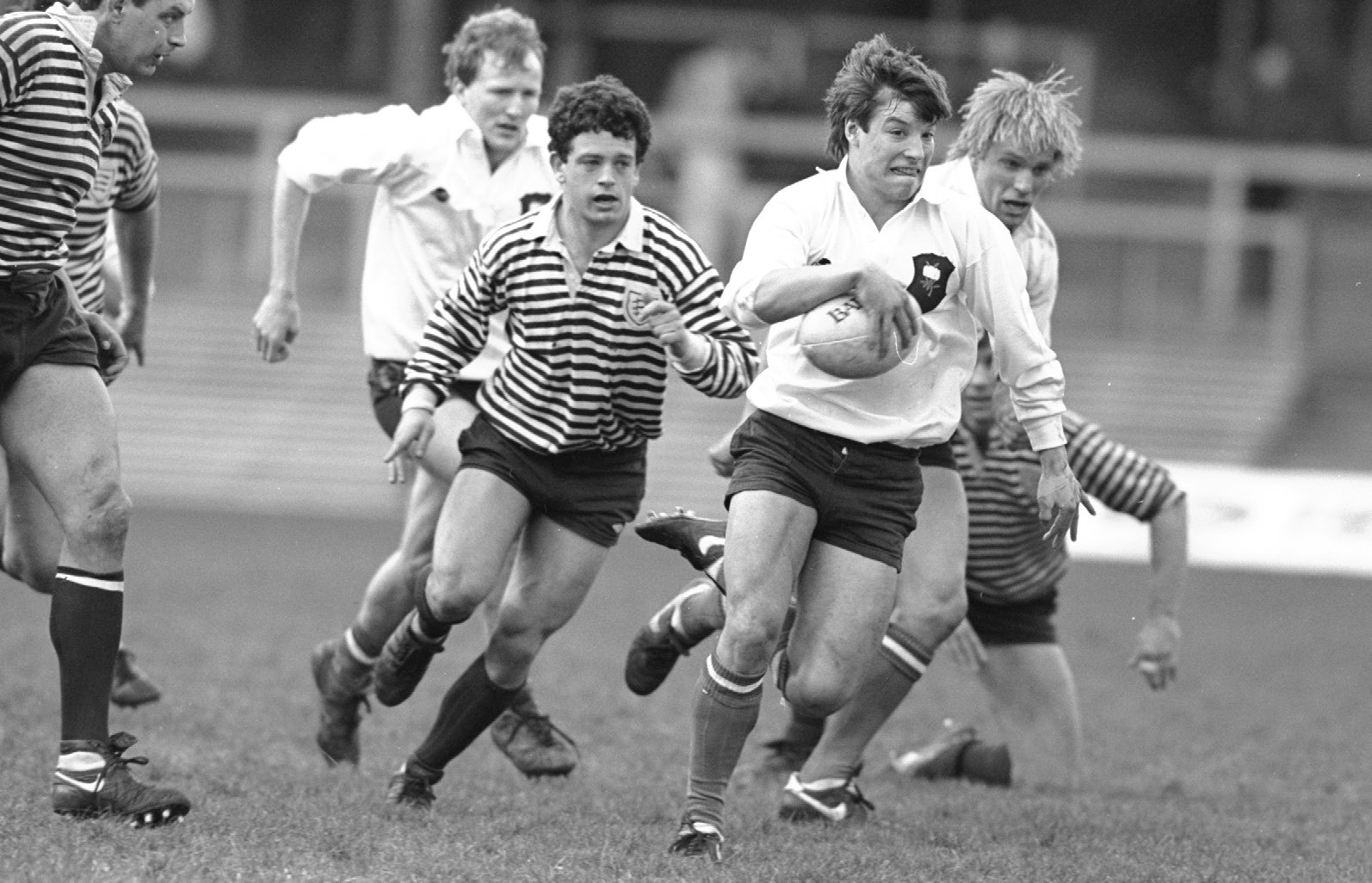
 As we sit back trying to digest our Christmas excesses while also enjoying the success of the England clubs in the Champions Cup, anticipating Eddie Jones first squad and a successful Six Nations, the usual questions and answers reverberate throughout the game.
As we sit back trying to digest our Christmas excesses while also enjoying the success of the England clubs in the Champions Cup, anticipating Eddie Jones first squad and a successful Six Nations, the usual questions and answers reverberate throughout the game.
Will Eddie Jones be ‘steady Eddie’, having met with Stuart Lancaster, taken note of his analysis of the current squad and keep the ship on course with the same captain, or go for broke and try to persuade the RFU to make a one-off
payment to PRL, allowing him to pick a completely new squad under a new captain?
Sadly, Eddie is unlikely to get the chance to change much as far as the squad is concerned except for the captain but there aren’t many candidates in the current group who could fill the role.
Much has been written about the potential of Dylan Hartley as a possible candidate for captain but I don’t think it would not be a good choice.
The idea that Hartley is just an abrasive character who doesn’t take a backward step is a fallacy. He is a good hooker but not a great one and probably no better than the possible replacements, Jamie George and Luke Cowan-Dickie.
I left Tom Youngs out because he, despite being a good all-round field player, is not a true hooker. Anyone who says that striking for the ball is dangerous because you have to lift your foot from the floor has obviously never been schooled in the art of front-row play and is, at best, used purely as an impact substitute.
The efforts by some to compare Hartley to players like Martin Johnson and Wade Dooley is, to be quite frank, ludicrous. Johnson and Dooley were ‘enforcers’, players who sought to protect teammates from people like Hartley – players that over-step the boundaries of what was and wasn’t acceptable on the field of play.
Rugby has always had a code of an acceptable level of violence within defined parameters. Punching and rucking were more or less accepted as a part of what was a far more physical game back then, despite the current denial of that fact.
The code covered acts like simple ‘handbag’ waving with little or no retribution, through to what was deemed unacceptable and would have to be dealt with immediately.
Whereas Johnson and Dooley may have punched or rucked players, who probably deserved it as a warning or punishment, Hartley, in my opinion, was opportunistic.
Almost every act that Hartley has been found guilty of has fallen into what players would deem to be the ‘unacceptable’ area, including biting, head butting and, worst of all, eye gouging.
Despite the lenience he has been shown as a senior England player (a benefit given to all international players), he has still served 54 weeks of bans damaging both his international career and his clubs results.
The arguments that his leadership qualities are what Jones is seeking to tap into, seems a little obtuse given that he would have been part of the leadership team under Lancaster but failed (despite any number of warnings) to curb his violent and abusive behaviour.
Hartley was Lancaster’s first choice hooker until his discipline problems ruled him out of selection. Even so, he remained in the squad and was given chance after chance to change and was warned of the consequences should he continue his behaviour.
Everybody says Hartley is a ‘perfect gent’ off the field and as Eddie Jones has said that all players will start with a clean slate but as an ex-hooker, Jones would also understand the reputation Hartley has among other players.
Another often asked question is, should the ‘Premiership be ring fenced?’ with the usual reply from the Premiership a resounding yes, even if they have moderated it with the words ‘an expanded’ Premiership.
Interestingly, the expansion seems to include only clubs that have rich owners who might consider legal action should a ring fence be forced into place.
The usual arguments that relegation stops player and game development because coaches won’t take the chance of fielding young players or playing an open game, was given a fresh airing by Dean Richards in last week’s Rugby Paper.
If you follow Deano’s logic, the clubs would be willing to field weakened teams, possibly play a more open style of rugby and lose games if they didn’t face the risk of relegation.
Without a co-ordinated approach (which would smack of match fixing), you could see games where seasoned professionals face callow youths.
The potential mismatches could result in the 70 point defeats that Quins director of rugby Conor O’Shea said nobody wants to see, especially the paying public.
In France, they have promotion and relegations with similar financial consequences to the Premiership and yet still manage to rotate squads and blood new players, usually in away games, which they expect to lose but still the perfect cauldron in which to test young players in meaningful games.
The Premiership is an elite league because each game has meaning and consequence, win or lose.
Ring-fence and the Premiership will become meaningless, no matter how many teams there are.

























You must be logged in to post a comment Login